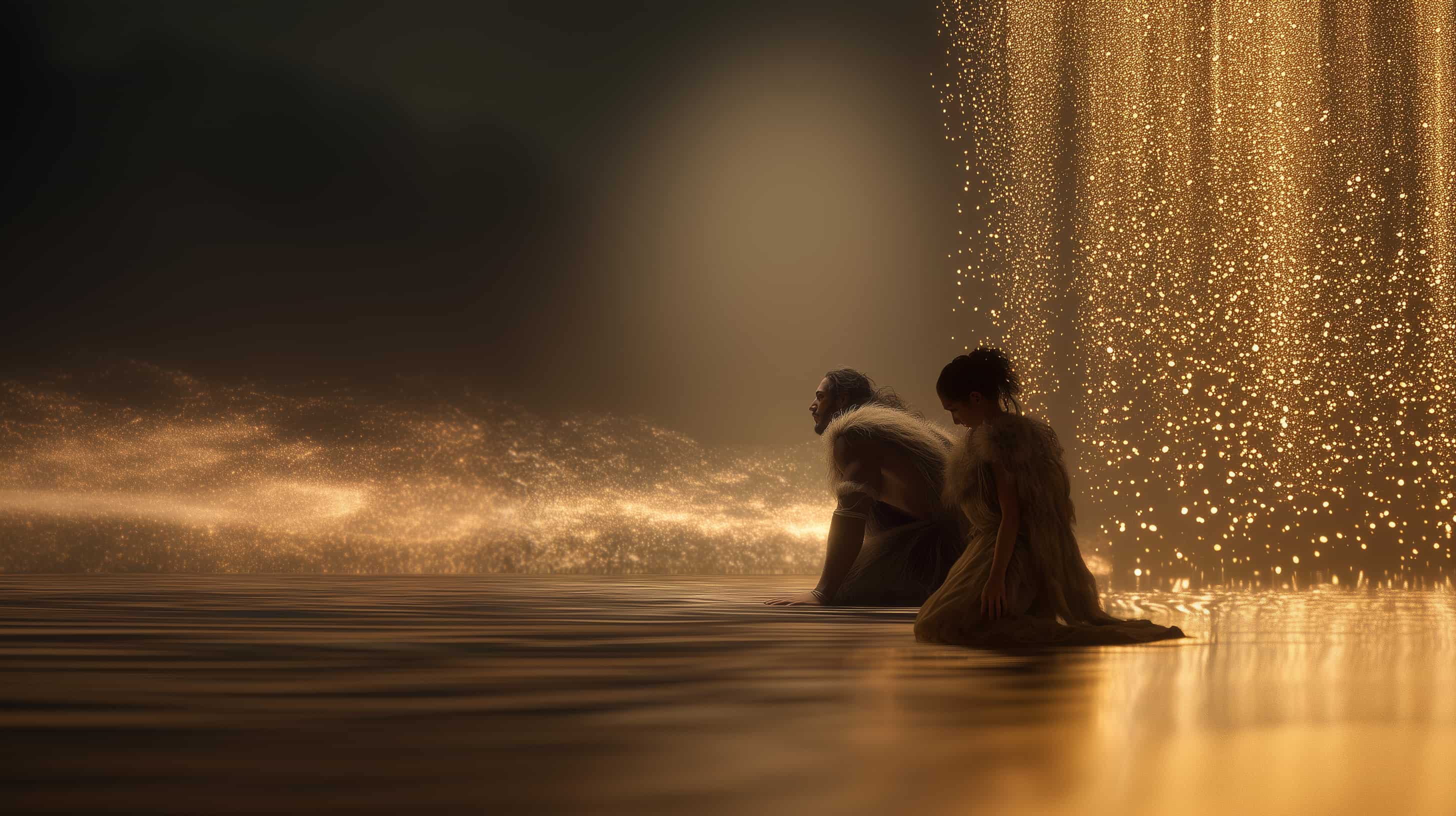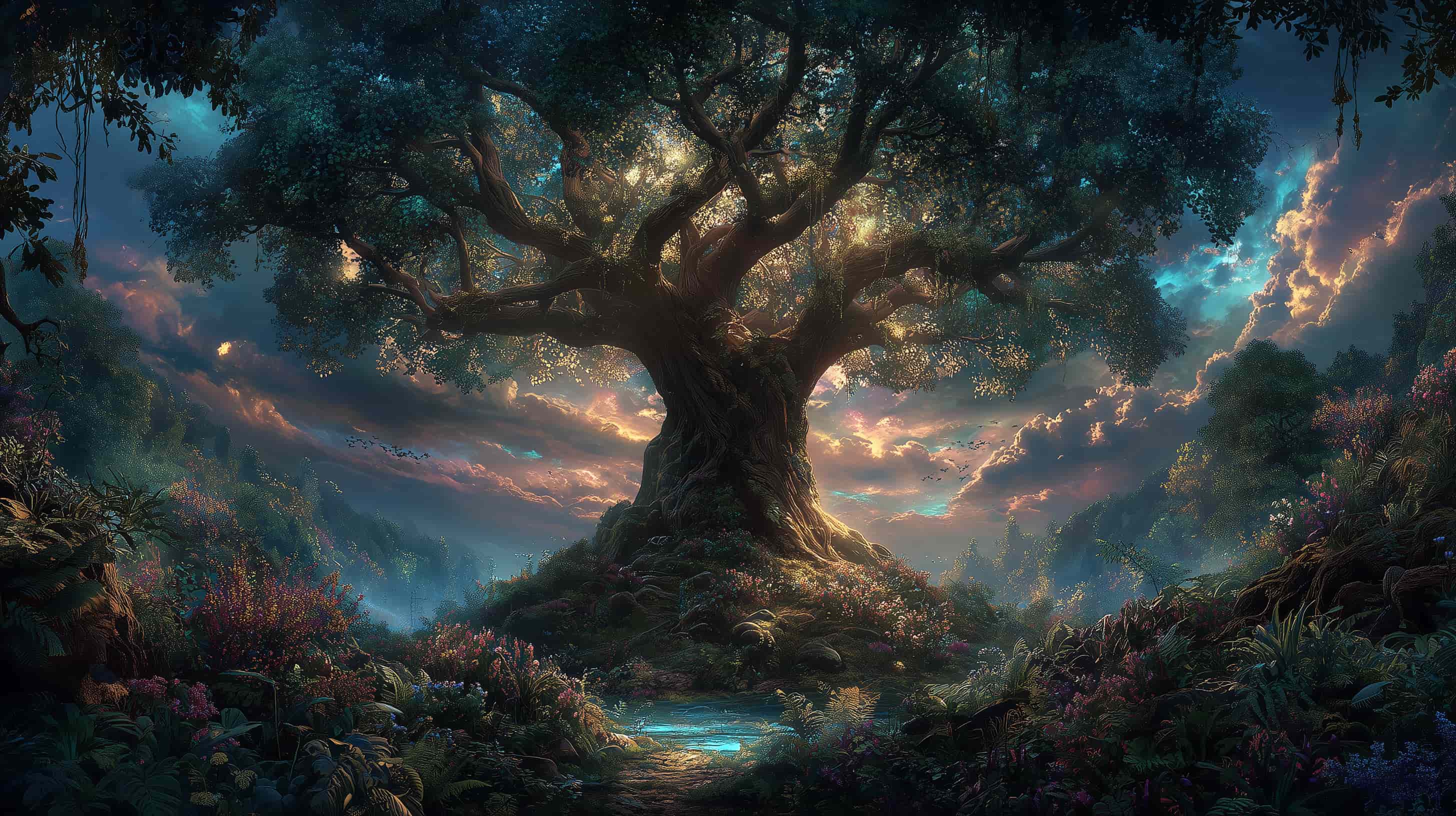
The sky is heavy with grief. Adam and Eve stand at the edge of paradise, looking back one last time.
Behind them, the gates of Eden glow with holy fire. A mighty cherubim blocks the way, its flaming sword flashing in every direction, ensuring the garden will never again be touched by their hands.
The laughter of Eden is silenced.
The harmony of creation is broken.
The intimacy of walking with God in the cool of the day is no more.
Before them lies a world they’ve never known… a world twisted by the curse of sin. A new life begins. But it is a life east of Eden.
What did this new life look like? Let’s ponder that question together…

Once, Adam and Eve were naked and unashamed.
There was no pretense, no insecurity, no power struggle.
But sin shattered that. Shame entered like a third partner in their marriage, and with it came blame and bitterness.
Did Adam resent Eve for handing him the fruit?
Did Eve lose respect for Adam, who stood silently by as the serpent deceived her?
Did their trust fracture in subtle, unspoken ways?
In Eden, love was effortless. But outside Eden, love became labor.
And isn’t that the story of every marriage since? Sin complicates love. Relationships require forgiveness, sacrifice, and humility. And even when we get most things right, love is still fragile.
Adam and Eve’s new reality became a mirror of our own: love in a fallen world is always uphill.
But they found a way. Their love bore Cain and Abel, then Seth after. Even under intense strain, love found a way to bring about life.

Before sin, Adam’s work was a joy. The earth yielded fruit easily, a partner in his labor. But now, the soil fought back.
Thorns pierced his hands. Sweat dripped from his brow. Some days, crops failed. Some years, famine lingered.
Imagine Adam’s frustration as he pounded the hardened earth: “It used to be so easy. Why won’t it grow?” Imagine the weariness in his bones at night, knowing tomorrow held more toil.
In Eden, creation cooperated. Outside Eden, creation resisted.
Work, once delight, became burden. And yet, it was through this curse that Adam learned perseverance, resilience, and dependence on God.
The same is true for us. Our work is hard, our world is harsh. But through the struggle, God forges strength.
WE TOOK A CINEMATIC RISK:
What was it like for Adam and Eve to survive East of Eden? How did the fight for love, life, and the future of mankind? Watch Episode 1 of Fallen Garden here 👇🏽

Perhaps the hardest change of all was spiritual. In Eden, Adam and Eve enjoyed unbroken fellowship with God. Now, they lived with distance. No garden walks. No face-to-face conversations. Only memory… and longing.
How did they figure out how to worship in a fallen world? They had no scrolls, no Psalms, no Gospels.
Did they stumble through awkward prayers at first? Did they wonder if God was listening? Scripture tells us they eventually offered sacrifices (Genesis 4:3–4), but surely this came through trial and error, learning slowly how to approach a holy God outside of Eden.
Their story reminds us of our own: faith in a fractured world isn’t neat or easy. It’s messy. It’s uncertain. But even outside Eden, God does not abandon His people.
So what happened when Adam and Eve were banished? They discovered what it meant to be human in a fallen world.
The struggle to love each other in broken relationships.
The struggle to endure in a world that resists us.
The struggle to connect with God when heaven feels silent.
Their story is our story. We, too, live east of Eden. We long for restoration, peace, and God’s presence again.
But the story doesn’t end in exile. God whispered a promise even in the curse: that one day, a Son would rise, born of a woman, who would crush the serpent’s head (Genesis 3:15).
That Son is Jesus
He bore the thorns Adam sweated under. He endured the bitterness of sin that broke Adam’s marriage. He opened the way back to God, not with a flaming sword, but with His own broken body and poured-out blood.
And because of Him, Eden will be restored.
